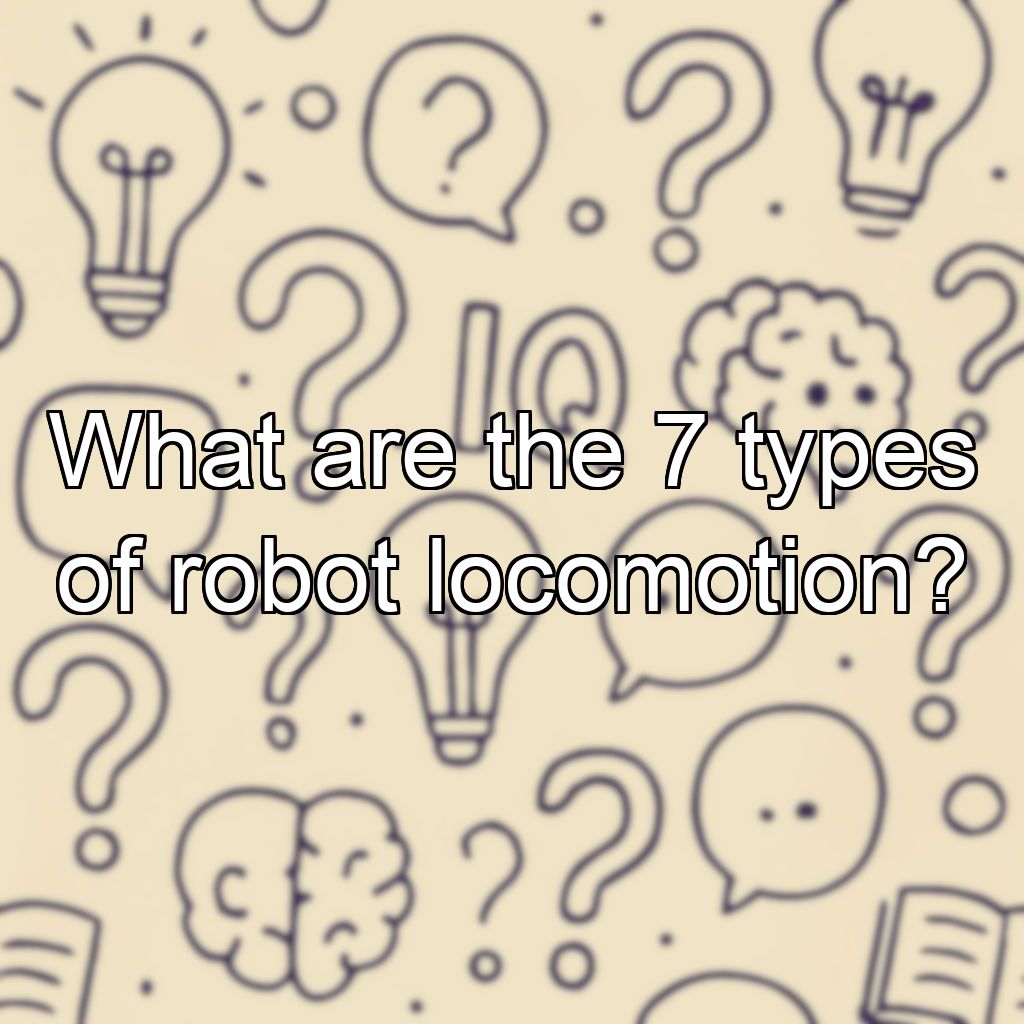What are the 7 types of robot locomotion?

Seven Types of Robot Locomotion
Robots utilize various methods to move through their environment. The seven main types of robot locomotion are:
1. Walking
Robots that imitate human or animal gait, using legs to step and balance. Examples include bipedal humanoid robots and quadruped robots.
2. Rolling
Using wheels or continuous tracks to roll over surfaces. This is common in mobile robots like wheelchairs or rovers.
3. Sliding
Moving by sliding across surfaces, often in conjunction with other methods, suitable for smooth surfaces or specific environments.
4. Flying
Locomoting through the air using wings, rotors, or jets. Examples include drones and aerial robots.
5. Swimming
Moving through water using fins, flippers, or propellers. Used in underwater robots or autonomous submarines.
6. Climbing
Scaling vertical surfaces or obstacles, utilizing specialized limbs or gripping mechanisms.
7. Jumping
Leaping over obstacles or gaps, often combining with other locomotion types for complex navigation.
Each type of locomotion is suited to specific environments and tasks, and some robots may combine multiple methods for versatile movement.